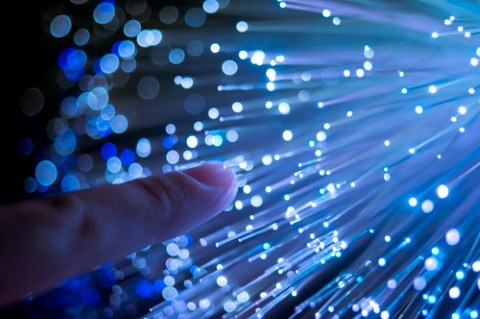Why Choose Fiber Optic Cables Over Copper

Fiber optic cables are one of the most popular mediums for new cabling installations and upgrades. They're considered the best option for backbone, horizontal, and even desktop applications, but some homeowners, business owners, or professionals still use copper wires.
Copper does have some advantages over fiber, including the fact that in many places it's already installed, so replacing it can be a difficult and expensive process. Fiber optic cables can also be more expensive to install, especially if you're replacing older cabling, but in many cases, it can offer enough advantages to make it totally worth it.
At Baron Communications, our professional networking experts can help you decide if fiber optic cabling is right for your home or business, and we can provide you with a customized design and installation of a fiber optic cabling system. If you're unsure of whether or not fiber optic cables would be right for your applications, take a look at these great benefits:
Fiber Optic Cables Transmit Data Faster
Fiber optic cables transmit data using light, so they get the job done much more quickly. It comes down to the speed of photons versus electrons. Fiber optic cables don't quite transmit data at the speed of light, but actually, they're only about 31% slower!
Fiber Optic Cables Are More Secure
With fiber cabling, you'll always know that your data is safe. It doesn't radiate signals, and it's extremely difficult to tap. If the cable is tapped, the cable will leak light, which makes it very noticeable and easy to monitor. Essentially, if anyone attempts to physically break the security of your cabling system, you'll know it.
Fiber networks also enable you to put all your electronics and hardware in one central location, instead of having wiring closets with equipment throughout the building.
Fiber Optic Cables Pose Fewer Hazards
If copper wires aren't properly installed and maintained, they can turn into a safety hazard. Copper wire will produce electromagnetic currents that can interfere with other wires and ultimately cause electrical fires.
Fiber optic cables don't conduct electricity, so they don't pose this risk.
Fiber Optic Cables Are More Durable Than Copper
Fiber optic cables don't break nearly as easily as copper wires do. That means—for one thing—you won't need to replace them nearly as frequently as copper wires. The fibers that comprise fiber optic cabling are made of glass, but the cables themselves are extremely durable.

